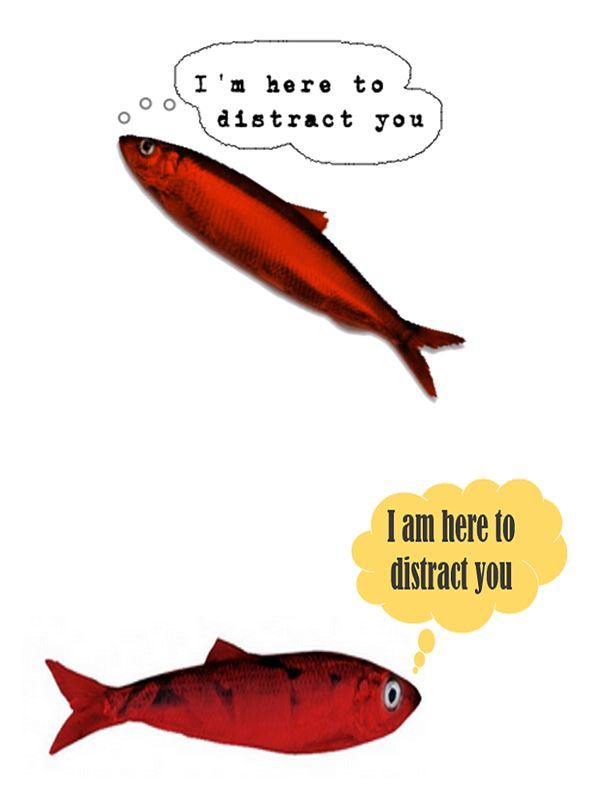

Sometimes they are linked, sometimes they are not, but only time will tell."Īrguing for raising taxes - "We need more revenue to support the programs that we have. However, let's consider that the weather has changed as well. What we should really discuss is my record on votes that expanded educational opportunities for all children."ĭefending one's inaction in regards to increased crime - "The crime in this city has, in fact, increased lately. What is really important is to talk about whether the government has enough cash flow to stay open through the month."ĭefending one's voting past - "While you may have concerns about my votes about the environment, I can assure you that I am an open-minded individual. Politicians may employ this tactic when:Īvoiding discussing a delicate topic - "I understand you want to know what happened at the embassy. In public speaking, this technique is called a pivot - but practiced rhetoricians know that it’s actually just a red herring. You’ve seen it a hundred times before: someone asks a politician a direct question, and in the blink of an eye, they’re talking about something else. But have you heard about the new sushi restaurant just across the street? It’s supposed to be amazing!” Do you want to see pictures?”Ĭhanging plans - “We could definitely go to the pizza place for dinner. It’s in the same location as my wedding, which was so fun because I invited my whole family and all my friends and we partied all night long. Turning the conversation around to yourself - “I’m so excited for your wedding. Getting out of trouble - “Why are you pulling me over for speeding? Shouldn’t you be out catching the real criminals? Someone could be robbing a bank as we speak!”


Rationalizing a purchase - “Yes, I bought an RV without your permission, but look at the trip I’ve already planned! We’ll have so much fun!” Don’t you love coffee?”Ĭomplaining about prices - “How can you charge that much for a burrito? Don’t you care about people who are hungry and can’t afford a gourmet burrito?” Let’s go home and see what fun toys we have there!”Ĭonvincing a parent to lend you the car - “I know you don’t want me to borrow the car, but I was going to pick up coffee for you. More everyday examples of the red herring fallacy include:ĭistracting a child - “You’re right, that toy in the toy shop looks really fun. Have you ever complained about your day and someone jumped in to say “You think that’s bad? Try commuting for two hours in the pouring rain!” Congratulations - you’ve just found a red herring in the wild.


 0 kommentar(er)
0 kommentar(er)
